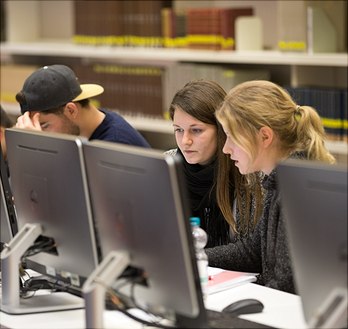M.Sc. Integrated Climate System Sciences
Study in Hamburg and enjoy access to Germany's hub for Climate research
The Master of Science program in Integrated Climate System Sciences offers four study foci:
- Physics of the Climate System
- Biogeochemistry of the Climate System
- Climate-Related Economics
- Climate-Related Social Sciences
You will study all four foci during your first semester. After the second semester, you can give your personal curriculum either an in-depth focus on one of the four foci, or an interdisciplinary approach whereby you combine various courses from the four foci.
Additionally, the ICSS program also offers many technical skills elective courses, which provide you with working knowledge in tools used for scientific programming and data analysis or software development. Some of these courses are listed below.










